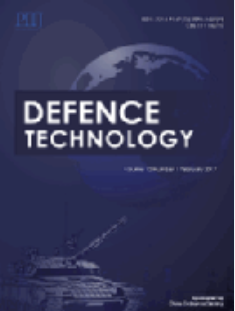Projectile impact and drop weight resistance of functionally graded fiber-reinforced magnetite aggregate concrete
IF 5.9
Q1 ENGINEERING, MULTIDISCIPLINARY
引用次数: 0
Abstract
Many researchers have focused on the behavior of fiber-reinforced concrete (FRC) in the construction of various defensive structures to resist against impact forces resulting from explosions and projectiles. However, the lack of sufficient research regarding the resistance of functionally graded fiber-reinforced concrete against projectile impacts has resulted in a limited understanding of the performance of this concrete type, which is necessary for the design and construction of structures requiring great resistance against external threats. Here, the performance of functionally graded fiber-reinforced concrete against projectile impacts was investigated experimentally using a (two-stage light) gas gun and a drop weight testing machine. For this objective, 12 mix designs, with which 35 cylindrical specimens and 30 slab specimens were made, were prepared, and the main variables were the magnetite aggregate vol% (55%) replacing natural coarse aggregate, steel fiber vol%, and steel fiber type (3D and 5D). The fibers were added at six vol% of 0%, 0.5%, 0.75%, 1%, 1.25%, and 1.5% in 10 specimen series (three identical specimens per each series) with dimensions of 40 × 40 × 7.5 cm and functional grading (three layers), and the manufactured specimens were subjected to the drop weight impact and projectile penetration tests by the drop weight testing machine and gas gun, respectively, to assess their performance. Parameters under study included the compressive strength, destruction level, and penetration depth. The experimental results demonstrate that using the magnetite aggregate instead of the natural coarse aggregate elevated the compressive strength of the concrete by 61%. In the tests by the drop weight machine, it was observed that by increasing the total vol% of the fibers, especially by increasing the fiber content in the outer layers (impact surface), the cracking resistance and energy absorption increased by around 100%. Note that the fiber geometry had little effect on the energy absorption in the drop weight test. Investigating the optimum specimens showed that using 3D steel fibers at a total fiber content of 1 vol%, consisting of a layered grading of 1.5 vol%, 0 vol%, and 1.5 vol%, improved the penetration depth by 76% and lowered the destruction level by 85%. In addition, incorporating the 5D steel fibers at a total fiber content of 1 vol%, consisting of the layered fiber contents of 1.5%, 0%, and 1.5%, improved the projectile penetration depth by 50% and lowered the damage level by 61% compared with the case of using the 3D fibers.
功能级配纤维增强磁铁矿骨料混凝土的弹丸冲击及抗落锤性能
许多研究人员关注纤维增强混凝土(FRC)在各种防御结构建设中的性能,以抵抗爆炸和弹丸产生的冲击力。然而,由于缺乏足够的关于功能分级纤维增强混凝土抗弹丸冲击的研究,导致对这种混凝土类型的性能的理解有限,这对于需要抵抗外部威胁的结构的设计和建造是必要的。本文采用两级轻气枪和落锤试验机对功能梯度纤维增强混凝土的弹丸冲击性能进行了实验研究。为此,我们编制了12种配合比设计,其中柱形试件35个,板形试件30个,主要变量为磁铁矿骨料体积%(55%)替代天然粗骨料、钢纤维体积%和钢纤维类型(3D和5D)。将纤维按0%、0.5%、0.75%、1%、1.25%、1.5%的6 vol%添加到尺寸为40 × 40 × 7.5 cm、功能分级(三层)的10个样品系列(每个系列3个相同的样品)中,分别在落锤试验机和气枪上进行落锤冲击和弹丸侵彻试验,以评估其性能。研究的参数包括抗压强度、破坏程度和穿透深度。试验结果表明,用磁铁矿骨料代替天然粗骨料可使混凝土抗压强度提高61%。在落锤试验机的试验中发现,增加纤维的总体积%,特别是增加外层(冲击面)纤维的含量,纤维的抗裂性和吸能性提高了100%左右。值得注意的是,在落锤试验中,纤维几何形状对能量吸收的影响很小。对最佳试样的研究表明,使用总纤维含量为1vol %,由1.5 vol%、0 vol%和1.5 vol%的层状级配组成的三维钢纤维,可将穿透深度提高76%,将破坏程度降低85%。此外,加入总纤维含量为1 vol%的5D钢纤维,即层状纤维含量为1.5%、0%和1.5%的情况下,与使用3D纤维的情况相比,弹丸侵深提高了50%,损伤程度降低了61%。
本文章由计算机程序翻译,如有差异,请以英文原文为准。
求助全文
约1分钟内获得全文
求助全文
来源期刊

Defence Technology(防务技术)
Mechanical Engineering, Control and Systems Engineering, Industrial and Manufacturing Engineering
CiteScore
8.70
自引率
0.00%
发文量
728
审稿时长
25 days
期刊介绍:
Defence Technology, a peer reviewed journal, is published monthly and aims to become the best international academic exchange platform for the research related to defence technology. It publishes original research papers having direct bearing on defence, with a balanced coverage on analytical, experimental, numerical simulation and applied investigations. It covers various disciplines of science, technology and engineering.
 求助内容:
求助内容: 应助结果提醒方式:
应助结果提醒方式:


